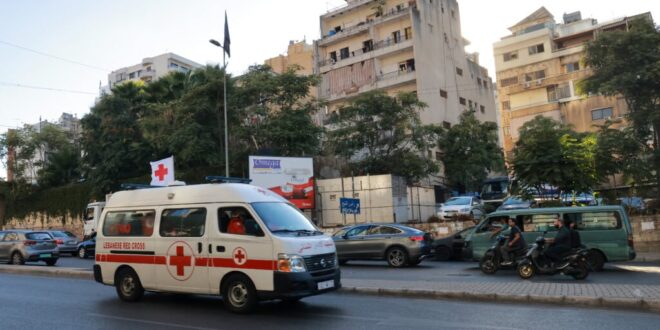Latest Developments
Hand-held radios used by Hezbollah terrorists exploded across Lebanon on September 18, one day after thousands of pagers carried by the Iran-backed organization’s operatives similarly detonated, plunging Israel’s northern neighbor into disarray.
Lebanon’s state news agency reported that three people were killed in the Bekaa Valley region, while footage posted to social media showed an explosion at a funeral in the Beirut suburb of Dahiya for Hezbollah terrorists killed during the September 17 operation, according to Reuters. Both areas are Hezbollah strongholds.
Hezbollah and its Iranian backers blamed Israel for the blasts. Jerusalem has not commented on whether it orchestrated the attacks. Signaling its intent to continue hostilities, Hezbollah launched 20 rockets at the northern Israeli city of Kiryat Shmona on September 18, with no injuries reported. The Israel Defense Forces (IDF) confirmed that some of the rockets had been intercepted.
Expert Analysis
“Hezbollah did not get the message with the pager sabotage: it’s time to cease and desist from its relentless attacks on Israel. It seems that whoever blew up those devices is willing to blow up more until that lesson is learned.” — Mark Dubowitz, FDD CEO
“The second wave of blasts of Hezbollah communication devices demonstrates that Israeli intelligence penetration of Hezbollah is even deeper than was revealed yesterday. The disruption to the group’s ability to communicate and the injuries inflicted — many irreversible — by the blasts upon thousands of its fighters will doubtlessly impact Hezbollah’s battle readiness.” — David Daoud, FDD Senior Fellow
Hand-Held Radios Purchased by Hezbollah at Same Time as Pagers
According to Reuters, the hand-held radios that detonated on September 18 were purchased by Hezbollah five months ago — around the same time that the pagers behind the previous day’s explosions were bought. The radios contained an inside panel labeled “ICOM” and “made in Japan.” ICOM, a Japanese telecommunications company, has said that “the production of several models of the ICOM hand-held radio have been discontinued, including the IC-V82, which appeared to closely match those in images from Lebanon and which was phased out in 2014.” The pagers, meanwhile, were manufactured in Hungary by a company named BAC, working under license from Taiwanese manufacturer Gold Apollo.
During a visit to the Northern Command on September 18, IDF Chief of Staff Lt. Gen. Herzi Halevi warned that Israel has “many more capabilities” that have not yet been deployed against Hezbollah. “We are very determined to create the security conditions that will bring the residents [of the north] back to their homes, to the towns, with a high level of security, and we are ready to do whatever is required to enable this,” Halevi said in a video released by the IDF. More than 60,000 residents of northern Israel have been displaced by Hezbollah’s attacks in the wake of the October 7 Hamas atrocities in Israel’s south. Israel’s security cabinet has updated its war goals to include the return of northern residents to their homes.
 Eurasia Press & News
Eurasia Press & News




